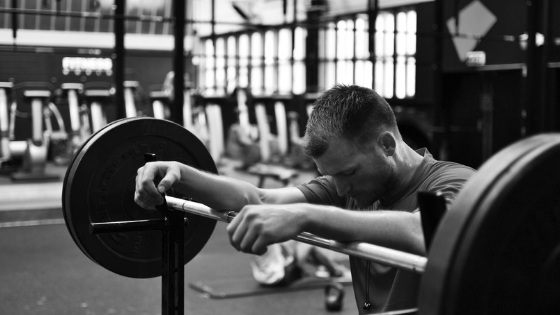
Testosterone: Men’s Marker of Overall Health
Share
As a pharmacist, many men frequently ask me what supplements are best for their vitality: building lean muscle, increasing energy, improving sleep, and enhancing libido.
Many of these gentlemen are using a variety of expensive mystery powders and capsules from their local body building shop. They are interested in male physical performance, or “ergogenics,”, but even deeper than this, they are really interested in one very important molecule for men’s overall health: testosterone.
Testosterone is a hormone produced in both men and women, but at much higher levels in men. It is the primary male sex hormone, involved in libido, mood, energy, bone density, and muscle growth. As men age, their testosterone levels begin to steadily decline after peaking around age 30. Signs of low testosterone include reduced sex drive (low libido), erectile dysfunction, low energy, depressed mood, decreased muscle mass, increased body fat, and sleep disturbances.
Testosterone is a great marker for men’s overall health because men need to have all of their health “ducks in a row” to have healthy testosterone levels. Achieving optimal testosterone requires proper stress management, adequate sleep, regular exercise, and a healthy diet. If even one of these pillars of health is out of place, testosterone levels can fluctuate and drop quickly.
On an almost daily basis, men ask me what they can do to increase and optimize their testosterone levels. There are a few simple lifestyle and dietary changes men can make to improve their testosterone status:
- Sleep- most of your testosterone is produced when you are resting in a deep sleep state. Low testosterone is common in men that are sleeping poorly or have some form of sleep apnea. It is very important to get approximately 8 hours of quality sleep each night.
- Manage Stress- when you are stressed out, your body releases the stress hormone, cortisol. Increased cortisol levels correlate directly with decreased free testosterone levels. Managing stress via mindfulness, meditation, yoga, or simply getting some much needed “R-and-R” (rest and relaxation) can help to reduce cortisol and increase testosterone levels.
- Lift Weights- frequent exercise, especially resistance training or weight-bearing exercise, stimulates testosterone production. When you lift weights, and produce micro-tears in muscle tissue, your body produces more testosterone to help rebuild this muscle tissue.
- Increase Zinc Intake- Amongst body builders, zinc is commonly believed to be the most anabolic mineral supplement. There is clinical evidence to support this as well. Multiple studies have shown that daily supplementation with approximately 30mg of zinc can increase circulating testosterone and muscle mass, as well as improve sleep quality. I recommend zinc glycinate or bisglycinate, as these forms of zinc absorb much better than other common forms.
If you are an aging man and you are wondering if you may have low testosterone, come in to NutriChem today to have a chat with one of our clinical pharmacists, naturopathic doctors, or registered holistic nutritionists. We can measure your testosterone levels and counsel you to help optimize your testosterone levels.
Adam Livingston, PharmD
NutriChem Pharmacist
Dr. Adam Livingston, PharmD, is a clinical pharmacist at NutriChem Compounding Pharmacy and Clinic. He is NutriChem’s Deprescribing Program Coordinator. Adam’s areas of focus include medication deprescribing, gastrointestinal health, mental health, and addiction.





1 comment
How much does an appointment with you and a testosterone test cost?
How long would the appointment last and would it be a one-time thing?